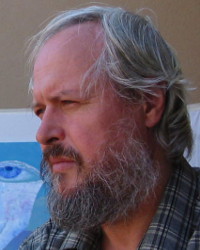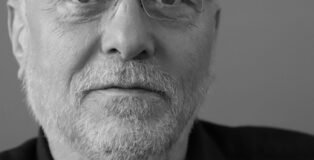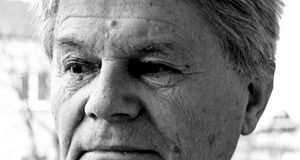[:ro]Cheşuţ Cristian[:en]Cheşuţ Cristian[:]
[:ro]
web: www.uad.ro,
Prezentare Demers Artistic
Porţile Clujului ca efigii de iubire
Istoricii nu ştiu şi nu pot să prezinte Clujul medieval – Oraşul de altădată în general – decât în maniera lor specifică, impusă de rigorile meseriei. Cititorii preiau mesajul cu oarecare greutate, se concentrează şi încearcă să-şi reprezinte ei, cu fantezia fiecăruia, viaţa clujeană de-odinioară, pornind, totuşi, de la ceea le oferă istoricii. Literaţii sunt însă privilegiaţi, fiindcă au libertatea să ia faptele şi datele istorice ca pretext şi să reconstituie lumea trecută prin prisma unui zbor al gândului, cu ajutorul imaginilor artistice. Aşa face Adrian Grănescu, căutător în cronici, dar căutător de vise, de crochiuri, de chipuri şi icoane, unele zugrăvite, altele tăiate în filigran, altele încrustate în basorelief. Se văd astfel – prin semne – străzi, statui, biserici şi palate, turnuri şi ziduri, morminte şi parcuri, toate devenite porţi, porţi ale iubirii omeneşti. Verbul lui Adrian Grănescu este însoţit de proza şi de poezia ilustraţiilor lui Cristian Cheşuţ, adevărat literat al imaginii. Vedem astfel, cu ochii spiritului, pe Regele Matia, pe Sf. Gheorghe, un contrafort, o fereastră, treptele Bastionului Croitorilor, Strada Lupului, îl vedem pe Blaga, adică vedem porţi, multe porţi. Unghiurile viziunii artistului fotograf se armonizează aşa de bine cu perspectiva artistului cuvântului, încât, la un moment dat, nu mai înţelegi exact cine mânuieşte cuvântul şi cine imaginea fotografică. În acest fel, Evul Mediu clujean, prelins spre amurg şi contopit cu modernitatea timpurie, se revarsă spre sufletele noastre în chip natural, ca şi cum cei doi artişti n-ar face niciun efort de comunicare. Şi nici nu-l fac, fiindcă ştiu să povestească sfătos şi discret, picurându-ne în minţi şi în inimi, fără ostentaţie, boabe din mărgăritarul „Oraşului Comoară”. Este în această carte o filosofie elegantă a porţii, ca loc privilegiat de trecere, înnobilat, din partea autorilor, cu efigii de iubire.
Academician Ioan-Aurel Pop
Rector al Universităţii „Babeş-Bolyai” Cluj-Napoca
website link: www.uad.ro,
[:en]
web: www.uad.ro,
Prezentare Demers Artistic
The gateways of Cluj as effigies of love
Historians do not know and cannot present the medieval Cluj – generally, the once city – but in their specific manner, required by the rigors of the craft. Readers take the message with a certain difficulty, they focus and try to represent, with each fantasy, the everyday former Cluj life, beginning, however, with the things provided by historians.
On the other hand, literates are privileged, for they have the freedom to take historical facts as a plea and retrace the world through a flight of thought, by means of artistic imagery.
So does Adrian Grănescu, seeker in chronicles, but a seeker of dreams, of sketches, of face shapes and of sacred icons, some portrayed, some filigree cut, some inlaid in relief. Thus – by means of signs – streets, statues, churches and palaces, tombs and walls, towers and parks are revealed, and they all become gateways. Gateways of human love. Grănescu’s verb is accompanied by the prose and the poetry of Cristian Cheşuţ’s illustration, a veracious literate of image. Like so, we see – with the eyes of spirit – King Matia, Saint George, an arched counterfort, a window, the steps of Taylor’s Bastion, Wolf Street and Blaga; namely, we see gateways, many gateways. The angles of the photographer’s vision blends so well with the Master of words’ perspective, that, at a certain point, one does not understand anymore who handles the word and who wields the picture.
Therefore, the Middle Ages of Cluj, seeped unto dusk and merged with early modernity, naturally flows to our souls, as if the two artists didn’t make any efforts to communicate. And the don’t, for they know how to narrate wisely and discreetly, unostentatiously pouring into our minds and hearts grains of the “Treasure City’s” pearl.
This book is an elegant philosophy of the gateway, as a privileged place of pass, titled by the authors with effigies of love.
Academician Ioan-Aurel Pop
Rector of “Babeş-Bolyai” University, Cluj-Napoca
website link: www.uad.ro,
[:]
















Comentarii recente